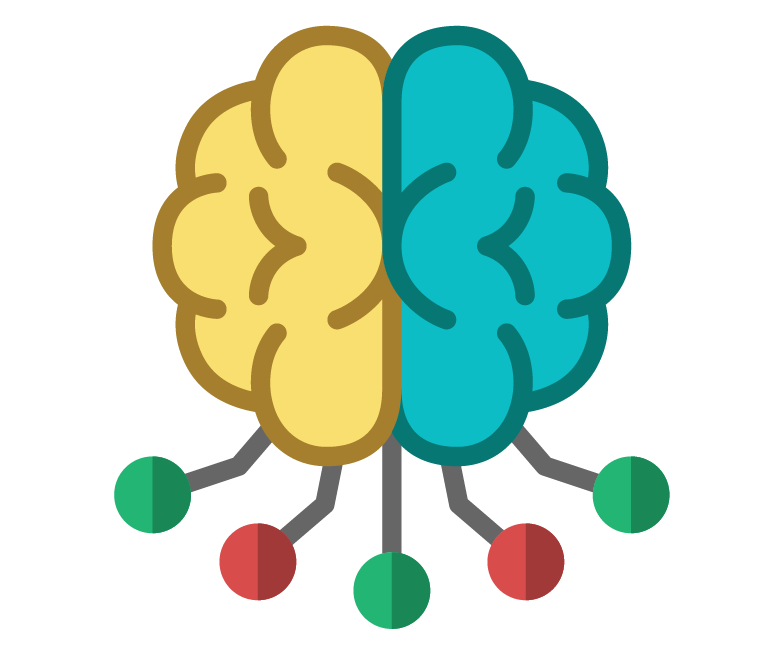

See the recorded sessions on this page.
About the event:
The "Blueprints for Trust: Best Practices and Regulatory Pathways for Ethical AI in Healthcare" conference aims to bring together healthcare professionals, researchers, policymakers, ethicists, and industry leaders to explore the latest breakthroughs, challenges, and prospects of Artificial Intelligence (AI) in medicine. This conference aims to foster collaboration, encourage the exchange of ideas, and facilitate networking among diverse stakeholders to stimulate innovation and ensure AI's responsible and ethical integration in the medical field. The event runs Sept. 21 and 22 from 8 am to 4 pm. Agenda is below. You can also add your comments on these topics on our online discussion forums. See also our AI Webinar series
Significance:
As AI continues to make impressive progress, there is a pressing need for clear guidelines to ensure the development and regulation of these systems maintain trust and safety. The Division of Clinical Informatics at Beth Israel Deaconess Medical Center (BIDMC) has previously co-organized conferences with AMIA on the secondary use of data and health privacy, significantly influencing General Data Protection Regulation (GDPR) policy development and implementation. It is now the perfect time for DCI and AMIA to collaborate again to help shape one of the most transformational technologies to impact healthcare.
Target Audience:
This exclusive, invitation-only event aims to attract a diverse range of professionals, including representatives from academia, corporations, the US Government, national medical societies, ethicists, patients and advocates interested in the evolution of healthcare through AI. The conference will serve as a platform for attendees to engage with industry thought leaders, participate in keynote addresses, panel discussions, and breakout sessions, and delve into crucial topics such as trust and transparency, ethical considerations, bias and health disparities, governance and policy, and real-world data applications in healthcare. Distinguished Speakers: Our conference will feature distinguished speakers from academia, government, and the private sector. These eminent leaders will offer invaluable insights and expertise on various aspects of AI in healthcare, equipping attendees with the knowledge and perspectives to navigate this complex field.
Conference Chairs:
-
Yuri Quintana, PhD, Chief, Division of Clinical Informatics, Beth Israel Deaconess Medical Center; Assistant Professor of Medicine, Harvard Medical School Senior Scientist, Homewood Research Institute
-
Steven E. Labkoff, MD, FACP, FACMI, FAMIA, Global Head, Clinical and Healthcare Informatics, Quantori; Collaborating Scientist, Division of Clinical Informatics, Beth Israel Deaconess Medical Center
-
Gretchen Purcell Jackson, MD, PhD, FACS, FAMCI, FAMIA, President and Board Chair, AMIA, Vice President and Scientific Medical Officer; Associate Professor, Intuitive Surgical, Vanderbilt University Medical Center
Keynote Sessions
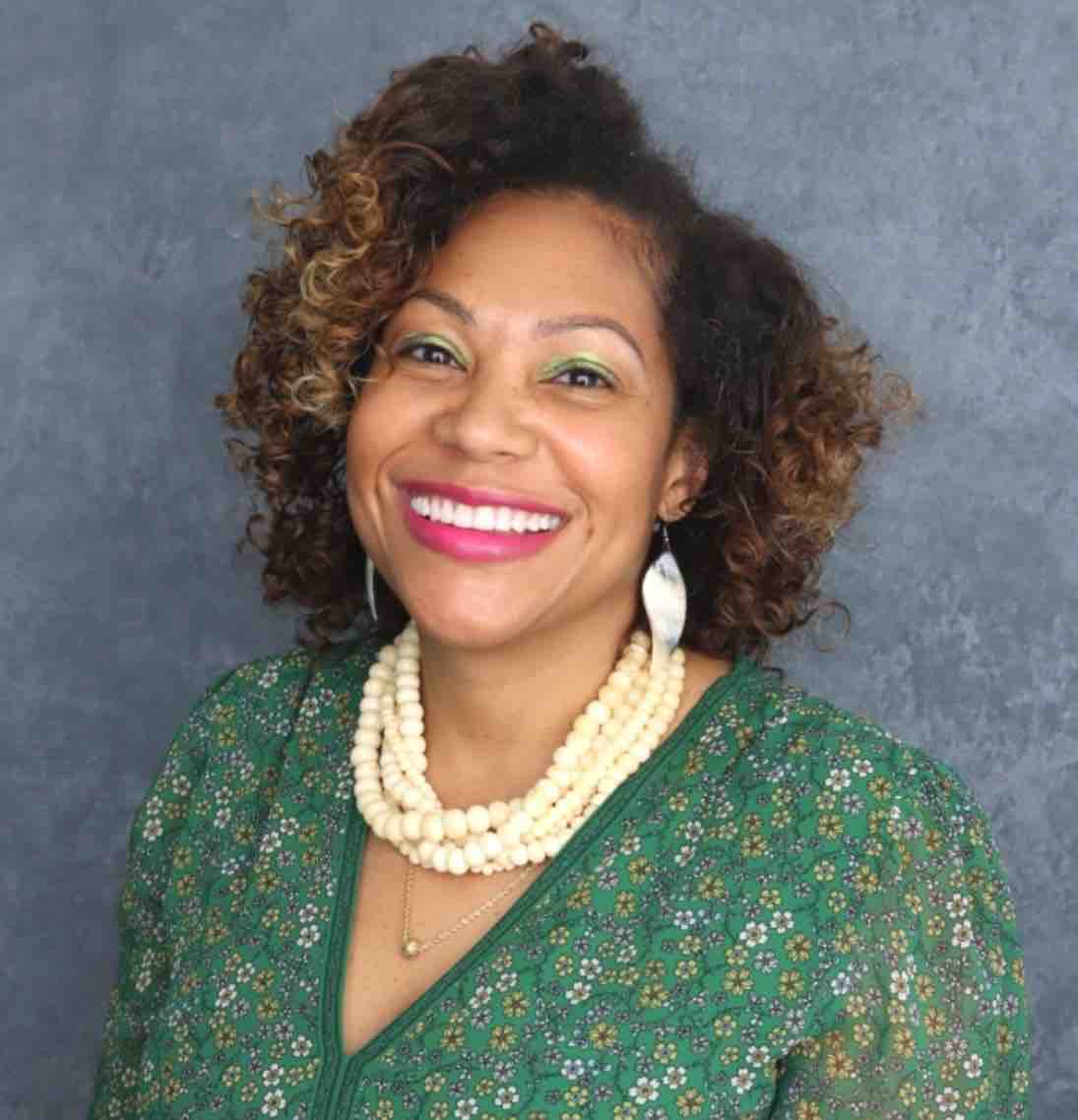
Tiffani J. Bright, PhD, FACMI
Co-Director, Center for Artificial Intelligence Research, Department of Computational Biomedicine, Cedars-Sinai Medical Center
See full bio below.

Isaac Kohane, MD, PhD
Chair of the Department of Biomedical Informatics, Harvard Medical School
Marion V. Nelson Professor of Biomedical Informatics, Harvard Medical School
Associate Professor of Medicine, Brigham and Women's Hospital
See full bio below.

David Bray, PhD
Loomis Council Co-Chair & Distinguished Fellow
Dr. David A. Bray is both a Distinguished Fellow and co-chair of the Alfred Lee Loomis Innovation Council at the non-partisan Henry L. Stimson Center
See full bio below.
Panels Sessions
Panel 1 - AI for Real-World Evidence:
- How do we ensure the datasets used to train these systems have equity and diversity?
- How can you validate the outputs of AI systems?
- How do you ensure it is not used to intentionally or unintentionally discriminate against people and groups?
- Whether and how to continue validating such outputs from AI systems with the updates and potential drifts?
Panelists:
- Mark G. Weiner, MD, FACMI, Deputy CIO for Health System and Research Analytics, Professor of Clinical Population Health Sciences and Medicine, Weill Cornell Medicine, New York-Presbyterian
- Robert Stolper, Managing Principal, Head of Enterprise Transformation Strategy, IQVIA
- Sheela Kolluri, PhD, Clinical Domain Lead, Artificial Intelligence, Data & Analytics (AIDA), Pfizer Digital
- Session Chair: Amar Das, MD, PhD, FACMI, FAMIA, Vice President, Real World Evidence, Guardant Health
Panel 2 - AI for Clinical Decision Making:
- What validation criteria must AI systems meet for regulatory bodies (such as the FDA, PDMA, or EMA), standardization organizations (such as NIST), or funding organizations (such as the NIH) to use the diagnostics and recommendations as reliable, accurate, and safe?
- What intermediate steps can the healthcare ecosystem stakeholders take to facilitate the development and operationalization of such standards?
Panelists:
- Dean Sittig, PhD, Biomedical Informatics, University of Texas Health Science Center
- Gretchen Purcell Jackson, MD, PhD, FACS, FAMCI, FAMIA, President and Board Chair, AMIA, Vice President and Scientific Medical Officer and Associate Professor, Intuitive Surgical, Vanderbilt University Medical Center
- Sayon Dutta, MD, MPH, Assistant Professor of Emergency Medicine, Massachusetts General Hospital, Physician Lead, Emergency Medicine and Clinical Decision Support, Mass General Brigham Digital
- Session Chair: Steven E. Labkoff, MD, FACP, FACMI, FAMIA, Global Head, Clinical and Healthcare Informatics, Collaborating Scientist, Division of Clinical Informatics, Beth Israel Deaconess Medical Center.
Panel 3 - AI for Consumer Health:
- How do we ensure the use of AI in self-care can be validated as safe, effective, and not cause harm without unduly constraining innovative uses?
Panelists:
- Amy Price, PhD, BMJ Research Editor (Patient and Public Partnership), Senior Research Scientist, Stanford School of Medicine
- Madeleine Clare Elish, PhD, Head of Responsible AI, Google Cloud
- Paul Barr, PhD, Associate Professor, The Dartmouth Institute for Health Policy & Clinical Practice, Biomedical Data Science
- Session Chair: Leon Rozenblit, PhD, Executive Director, QED Institute, Collaborating Scientist, Division of Clinical Informatics, Beth Israel Deaconess Medical Center.

Conference Format:
The event will be held on the Harvard University Campus. Day 1 will have sessions that will be webcast, and you can register on this other webpage to get the webcast. The full two day conference on Sept 21 and 22 will also be in person by limited to 50 people. The second day will be for the thought leaders to break up into working groups by panel theme and develop concrete recommendations for implementing actions by governments, healthcare providers, and the private sector based on existing or proposed new initiatives.
Register on this page to apply to attend in person on Sept 21 and 22 at Harvard.
Register on this other page to view the webcast on Day 1.
Conference Agenda: September 21, 2023
- 8-00-8:30 AM Breakfast and Networking
- 8:30-9:00 AM Welcome Remarks
- 9:00 -9:45 AM Keynote 1
- 9:45-10:00 AM Q&A
- 10:00-10:15 AM Break
- 10:15-10:45 AM Panel 1
- 10:45-11:15 AM Q&A
- 11:15-11:30 AM Break
- 11:30-12:15 PM Keynote 2
- 12:15-1:00 PM Lunch Break (and group photo)
- 1:00-1:30 PM Panel 2
- 1:30-1:45 PM Q&A
- 1:45-2:00 PM Break
- 2:00-2:30 PM Keynote 3
- 2:30-3:00 PM Panel 3
- 3:00-3:30 PM Q&A
- 3:30-3:45 PM Wrap Up and Next Steps
- 3:45-4:00 PM Depart Venue
Workshop Agenda: September 22, 2023
- 8:00-8:30 AM Breakfast and Networking
- 8:30–9:00 AM Opening Remarks
- 9:00–10:45 AM Breakout Group Session 1
- 10:45-11:00 AMBreak
- 11:00-12:00 PM Report from each breakout session
- 12:00-1:00 PM Working Lunch and Networking (and group photo)
- 1:00-2:30 PM Break Group Session 2
- 2:30-2:45 PM Break
- 2:45-3:30 PM Reports from Groups
- 3:30–3:45 PM Next Steps
- 3:45-4:00 PM Depart Venue
Outcomes:
The conference will provide ample opportunities for networking and collaboration among attendees, as well as discussions on state-of-the-art AI solutions and products and their ethical, trust, and other challenges. Deliverables from this conference will include:
- Creating policy documents for public discussion to influence regulations and implementations
- A panel will be held at the fall AMIA conference summarizing the outcomes of this conference.
- Creation of scientific articles for submission to leading academic journals.
- Press releases on outcomes of the event
- Valuable discussion points for policymakers in government and medical societies.
Key Takeaways for Participants:
Participants can expect to gain an in-depth understanding of AI’s current and future landscape in healthcare. They will leave the conference armed with fresh insights, new relationships, and the ability to contribute to the national dialogue, ensuring AI's responsible and ethical deployment in healthcare. Additionally, the conference participants will generate tangible outcomes, including whitepapers and policy papers designed to inform and influence various stakeholder groups responsible for shaping healthcare in the United States today.

Frequently Asked Questions:
Q. Is there a cost to attend online?
- There are no costs to attend online. Register here.
Q. Is there a cost to attend onsite?
- There is no cost to attend the conference in-person, but attendance spaces are very limited. Interested attendees will need to apply first on this page and get confirmation before making travel plans. Breakfast and lunch will be provided at the event.
Q. Are travel costs covered?
- Each person needs to cover their own travel.
Q. Will the event be recorded?
- Day 1 on September 21, 2023, will be recorded and available after the event.
Q. What about other questions?
- Please email Gyana Srivastava at gsrivast@bidmc.harvard.edu.

Hotel Recommendations:
The following are a few hotel recommendations near Harvard University. Please note that we have not reserved any block of rooms.
- Hotel Veritas: 1 Remington St, Cambridge, MA 02138
- Charles Hotel: 1 Bennett St, Cambridge, MA 02138
- Sheraton Commander Hotel: 16 Garden St, Cambridge, MA 02138
- Hyatt Regency Boston / Cambridge: 575 Memorial Dr., Cambridge, Massachusetts, United States, 02139
- Courtyard by Marriott Boston Cambridge: 777 Memorial Drive, Cambridge, Massachusetts, USA, 02139
- Irving House at Harvard: 24 Irving St, Cambridge, MA 02138
Closest to the Harvard University:
- Harvard Square Hotel: Link
- Irving House: Link
- Charles Hotel: Link
- Hotel Veritas: Link
- Sheraton Commander Hotel: Link
Nearby with short uber ride
- Holiday Inn Boston Bunker Hill Area, an IHG Hotel: Link
- Hyatt Regency Boston / Cambridge: Link
- Courtyard by Marriott Boston Cambridge: Link
Lower priced - longer uber drive
- Hilton Garden Inn: Link
- AC Hotel Boston Cleveland Circle: Link
- The Inn At Longwood Medical: Hotel Website Link,
Co-Organized with AMIA:
 This conference is being organized in collaboration with the American Medical Informatics Association (AMIA) (https://amia.org). AMIA, the leading professional association for informatics professionals, is the center of action for 5,600 informatics professionals from more than 65 countries. As the voice of the nation’s top biomedical and health informatics professionals, AMIA and its members play a leading role in assessing the effect of health innovations on health policy and advancing the field of informatics. AMIA actively supports five domains in informatics: translational bioinformatics, clinical research informatics, clinical informatics, consumer health informatics, and public health informatics.
This conference is being organized in collaboration with the American Medical Informatics Association (AMIA) (https://amia.org). AMIA, the leading professional association for informatics professionals, is the center of action for 5,600 informatics professionals from more than 65 countries. As the voice of the nation’s top biomedical and health informatics professionals, AMIA and its members play a leading role in assessing the effect of health innovations on health policy and advancing the field of informatics. AMIA actively supports five domains in informatics: translational bioinformatics, clinical research informatics, clinical informatics, consumer health informatics, and public health informatics.
About DCI:
T he Division of Clinical Informatics (https://research.bidmc.org/dci) at Beth Israel Deaconess Medical Center (BIDMC) is a leading center for scalable informatics research and policymaking. The DCI Network (https://www.dcinetwork.org) accelerates solutions to complex healthcare problems through multi-stakeholder alliances and strategic roadmaps, focusing on harmonizing data, improving patient engagement, and building trust in AI.
he Division of Clinical Informatics (https://research.bidmc.org/dci) at Beth Israel Deaconess Medical Center (BIDMC) is a leading center for scalable informatics research and policymaking. The DCI Network (https://www.dcinetwork.org) accelerates solutions to complex healthcare problems through multi-stakeholder alliances and strategic roadmaps, focusing on harmonizing data, improving patient engagement, and building trust in AI.

Program Committee:
The conference has been organized under the guidance of our esteemed Program Committee. The names have been presented in alphabetical order.
-
Amar Das, MD, PHD, FACMI, FAMIA, Vice President, Real World Evidence, Guardant Health
-
Amy Price, PhD, BMJ Research Editor (Patient and Public Partnership); Senior Research Scientist, Stanford School of Medicine
-
Dave deBronkart “e-Patient Dave”, Founding Co-chair, HL7® Patient Empowerment Workgroup; Member, The BMJ’s Patient Advisory Panel
-
Gretchen Purcell Jackson MD, PhD, FACS, FAMCI, FAMIA, President and Board Chair, AMIA, Vice President and Scientific Medical Officer; Associate Professor, Intuitive Surgical, Vanderbilt University Medical Center
-
Julia Adler-Milstein, PhD, Professor of Medicine, University of California, San Francisco
-
Magdala (Maggie) Chery, DO, MBS, MPH, Health Equity Clinical Specialist, Google
-
Pei-Yun (Sabrina) Hseuh, PhD, Director of Ethical AI and External Innovation, Pfizer
-
Philip Payne, PhD, FACMI, FAMIA, FAIMBE, FIAHSI, Professor and Founding Director of the Institute for Informatics, Data Science, and Biostatistics (I2DB), Washington University in St. Louis; Associate Dean for Health Information and Data Science, Chief Data Scientist, Washington University School of Medicine.
-
Steven (Steve) Labkoff, MD, FACP, FACMI, FAMIA, Global Head, Clinical and Healthcare Informatics, Quantori; Collaborating Scientist, Division of Clinical Informatics, Beth Israel Deaconess Medical Center, Harvard Medical School
-
Yuri Quintana, PhD, Chief, Division of Clinical Informatics, Beth Israel Deaconess Medical Center; Assistant Professor of Medicine, Harvard Medical School Senior Scientist, Homewood Research Institute

Sponsorship and Contact:
For more information about the conference and to become a sponsor, please contact DCI: Yuri Quintana, Ph.D., Chief of Division of Clinical Informatics, Beth Israel Deaconess Medical Center (BIDMC) and Assistant Professor of Medicine at Harvard Medical School (yquintan@bidmc.harvard.edu) and Gyana Srivastava, Research Assistant II, BIDMC (gsrivast@bidmc.harvard.edu).
SPONSORS




![]()


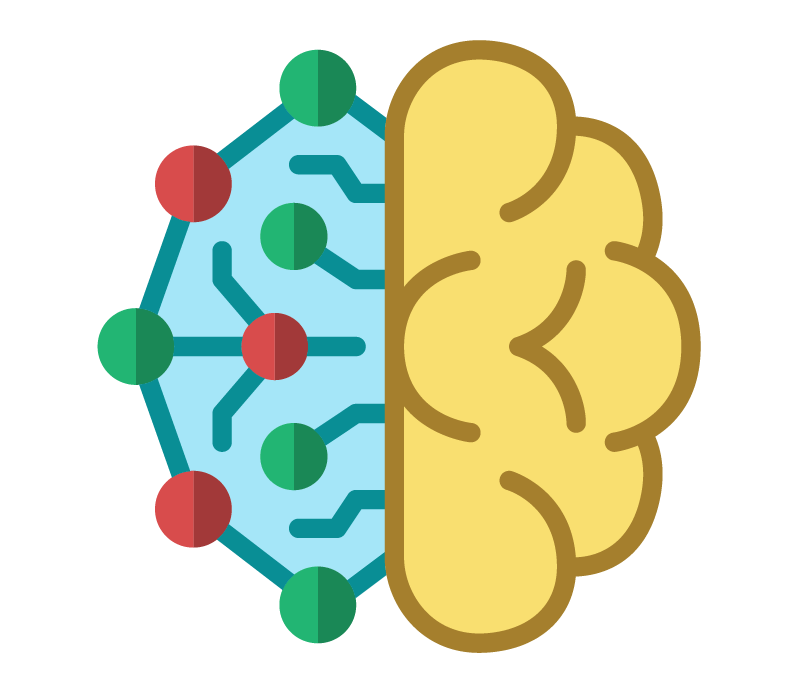
Register
On-Site Attendance Application
Keynote Bios
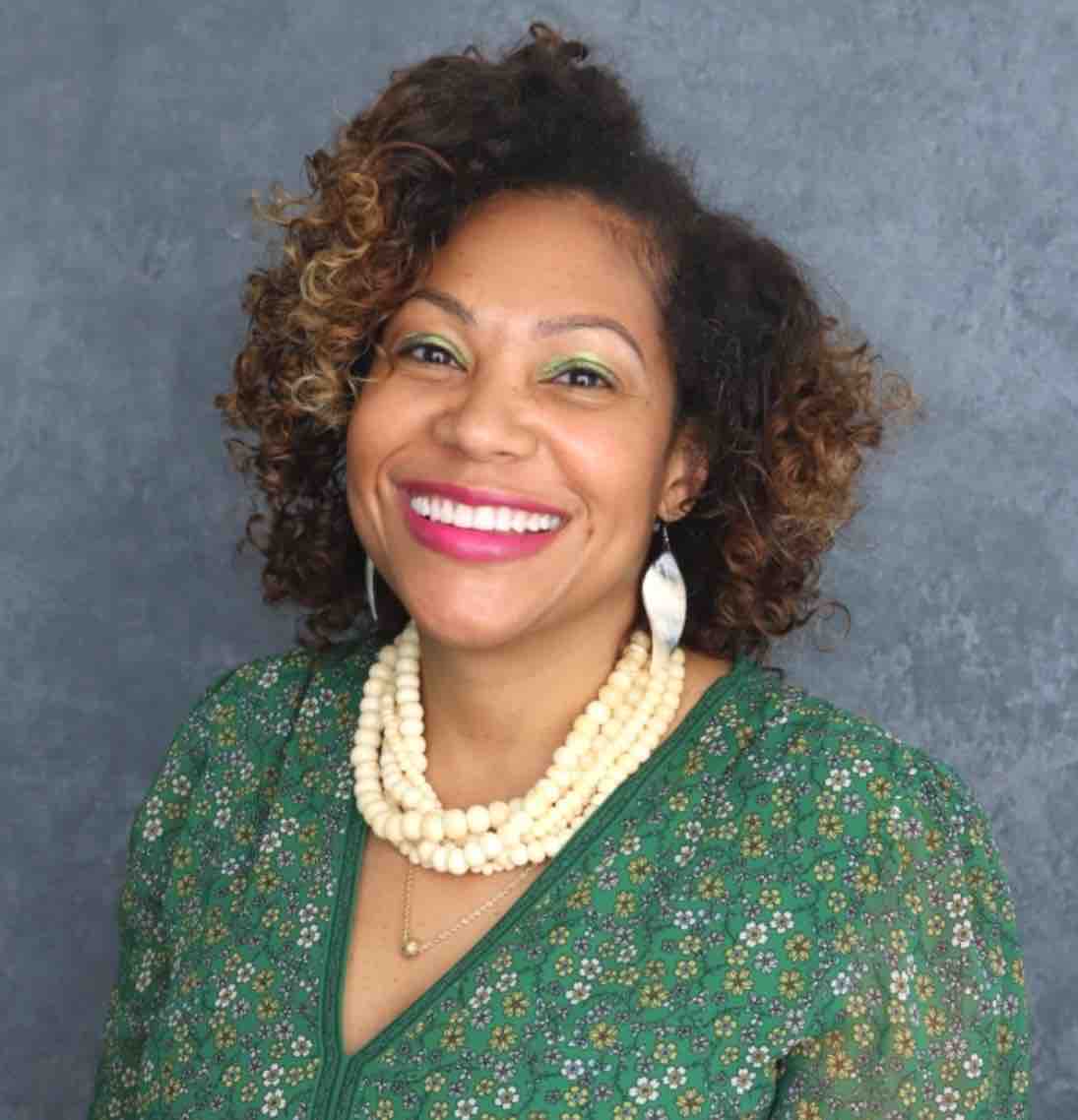
Tiffani J. Bright, PhD, FACMI
Co-Director, Center for Artificial Intelligence Research, Department of Computational Biomedicine, Cedars-Sinai Medical Center
Dr. Tiffani J. Bright is a Research Scientist II at Cedars-Sinai Medical Center, where she also co-directs the Center for Artificial Intelligence Research and Education. A renowned expert in applied clinical informatics, she excels in the design and evaluation of clinical decision support systems and the optimization of electronic health records. Dr. Bright earned her PhD in Biomedical Informatics from Columbia University and completed a Post-Doctoral Fellowship at Duke University. Notably, she is the first Black woman to earn a doctorate in this field in the U.S.; she is also the first from Columbia University. Prior to her current role, she led the Biomedical Informatics Evaluation Team at IBM Watson Health. Dr. Bright was the inaugural Chair of the Diversity, Equity, and Inclusion Task Force and Committee for the American Medical Informatics Association (AMIA) and was honored with the prestigious 2021 AMIA Leadership Award for her contributions to developing a diverse and inclusive informatics workforce. Her research interests include artificial intelligence, algorithmic bias, and human-computer interaction in healthcare settings. With her unique expertise and accolades, Dr. Bright is a trailblazer in both healthcare technology and social equity.

Isaac Kohane, MD, PhD
Chair of the Department of Biomedical Informatics, Harvard Medical School
Marion V. Nelson Professor of Biomedical Informatics, Harvard Medical School
Associate Professor of Medicine, Brigham and Women's Hospital
Isaac “Zak” Kohane, MD, PhD, is the inaugural chair of Harvard Medical School’s Department of Biomedical Informatics, whose mission is to develop the methods, tools, and infrastructure required for a new generation of scientists and care providers to move biomedicine rapidly forward by taking advantage of the insight and precision offered by big data. Kohane develops and applies computational techniques to address disease at multiple scales, from whole health care systems to the functional genomics of neurodevelopment. He also has worked on AI applications in medicine since the 1990’s, including automated ventilator control, pediatric growth monitoring, detection of domestic abuse, diagnosing autism from multimodal data and most recently assisting clinicians using whole genome sequence and clinical histories to diagnose rare or unknown disease patients. He is the inaugural Editor-in-Chief of the New England Journal of Medicine AI and co-author of a recent book “The AI Revolution in Medicine. " He is a member of the National Academy of Medicine, the American Society for Clinical Investigation and the American College of Medical Informatics.

David Bray, PhD
Distinguished Fellow and co-chair, Alfred Lee Loomis Innovation Council, Henry L. Stimson Center
Dr. David A. Bray is both a Distinguished Fellow and co-chair of the Alfred Lee Loomis Innovation Council at the non-partisan Henry L. Stimson Center. He is also a non-resident Distinguished Fellow with the Business Executives for National Security, and a CEO and transformation leader for different “under the radar” tech and data ventures seeking to get started in novel situations. He is Principal at LeadDoAdapt Ventures and has served in a variety of leadership roles in turbulent environments, including bioterrorism preparedness and response from 2000-2005. Dr. Bray is the Executive Director for a bipartisan National Commission on R&D, providing non-partisan leadership as a federal agency Senior Executive, works with the U.S. Navy and Marines on improving organizational adaptability, and U.S. Special Operation Command’s J5 Directorate on the challenges of countering disinformation online. He has received both the Joint Civilian Service Commendation Award and the National Intelligence Exceptional Achievement Medal. David accepted a leadership role in December 2019 to direct the successful bipartisan Commission on the Geopolitical Impacts of New Technologies and Data that included Senator Mark Warner, Senator Rob Portman, Rep. Suzan DelBene, and Rep. Michael McCaul. From 2017 to the start of 2020, David also served as Executive Director for the People-Centered Internet coalition Chaired by Internet co-originator Vint Cerf and was named a Senior Fellow with the Institute for Human-Machine Cognition starting in 2018. Business Insider named him one of the top “24 Americans Who Are Changing the World” under 40 and he was named a Young Global Leader by the World Economic Forum. For twelve different startups, he has served as President, CEO, Chief Strategy Officer, and Strategic Advisor roles. David enjoys creative problem-solving linking public and private endeavors. He began working for the U.S. government at age 15 on computer simulations at a high-energy physics facility investigating quarks and neutrinos. In later roles, he designed new telemedicine interfaces and space-based forest fire forecasting prototypes for the Department of Defense. From 1998-2000 he volunteered as a part-time crew lead with Habitat for Humanity International in the Philippines, Honduras, Romania, and Nepal while also working as a project manager with Yahoo! and a Microsoft partner firm. Dr. Bray then joined as IT Chief for the Bioterrorism Preparedness and Response Program at the U.S. Centers for Disease Control and Prevention, leading the program’s technology response to 9/11, anthrax in 2001, Severe Acute Respiratory System in 2003, and other international public health emergencies. He later completed a PhD from Emory University’s Goizueta Business School and two post-doctoral associateships at MIT and Harvard in 2008. As Principal at LeadDoAdapt Ventures, Dr. Bray’s passions include providing Board-level and CEO-level leadership to different “under the radar” tech and data ventures seeking to get started in novel situations to include activities that shape the Future of Data, Bio, and Space. He provides strategic direction, advice, and leadership to organizations confronting turbulent environments on multiple topics ranging from quantum computing to commercial space endeavors; synthetic biology to data cooperatives paired with AI. He accepted a role of Co-Chair for 2016-2017 with an IEEE Committee focused on Artificial Intelligence, automated systems, and innovative policies globally and has been serving as a Visiting Executive In-Residence at Harvard University since 2015 and as a Faculty Member giving talks on Impact and Disruption at Singularity University since 2017. In 2021 and 2022, he was named a Distinguished Fellow with the Atlantic Council. In 2022, the Business Executives for National Security welcomed him as a Distinguished Fellow focused on the intersection of new technologies, global collaborations, and over-the-horizon challenges for the future ahead. David has been an invited keynote speaker to CEOs, world leaders, and crowds of more than 3,000 participants at events in India, Vietnam, Australia, Taiwan, Dubai, South Africa, Brazil, Colombia, Mexico, Canada, Belgium, Sweden, Singapore, Saudi Arabia, Switzerland, and the United Kingdom.
Panelist Bios
In order of panel presentations.

Amar Das, MD, PhD, FACMI, FAMIA
Vice President, Real World Evidence, Guardant Health
Dr. Amar Das is Vice President, Real World Evidence at Guardant Health. He has three decades of experience in advancing clinical research using AI, informatics and epidemiology, now focused on precision oncology. Prior to Guardant Health, Dr. Das was a faculty member at Stanford University Medical School and at the Geisel School of Medicine at Dartmouth. At Dartmouth, he served as Director of the Division of Biomedical Informatics within the Department of Biomedical Data Science, which he cofounded. Following his career in academia, he served as Director of Healthcare Effectiveness Research at IBM Research and Director of Real World Data Analytics and Innovation at Merck Research Laboratories. Dr. Das has received multiple professional and research awards and is both a Fellow of the American College of Medical Informatics and of the American Medical Informatics Association.
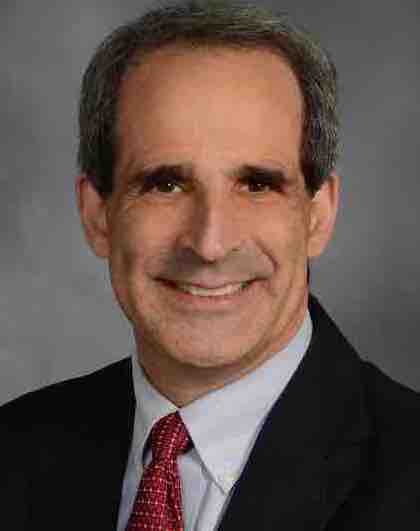
Mark G. Weiner, MD, FACMI
Deputy CIO for Health System and Research Analytics, Professor of Clinical Population Health Sciences and Medicine; Weill Cornell Medicine, New York-Presbyterian
Dr. Weiner is a practicing general internist and research informaticist with 30 years experience working at the nexus between health services research and medical informatics. He is the MPI and informatics lead for INSIGHT, the PCORI-funded Clinical Research Network encompassing the 5 major academic medical centers in New York City. He is also the MPI and informatics lead for the PCORnet Adult RECOVER initiative, part of the NIH RECOVER project that is exploring the risk factors, characteristics and outcomes of patients with the Post Acute Sequelae of SARS-CoV-2 (PASC). His work focuses on the appropriate applications of real world data toward generation of real world evidence, including recognition and remediation of data quality, bias and fitness for use.

Robert Stolper
Managing Principal, Head of Enterprise Transformation Strategy, IQVIA
Robert Stolper is Managing Principal and Head of Enterprise Transformation Strategy at IQVIA. He brings almost 25 years of experience partnering with biopharmaceutical companies to build innovative clinical development and commercialization strategies at the enterprise, portfolio, and product level. He has a particular focus and interest in facilitation of strategic decision making using advanced analytics, including AI, and has experience leveraging a range of real-world datasets to improve diagnosis and treatment of patients across diseases. Prior to IQVIA, Rob has held leadership positions in AIML healthcare start-ups and global strategy consulting firms. He is a graduate of Harvard University with a degree in Biochemical Sciences.
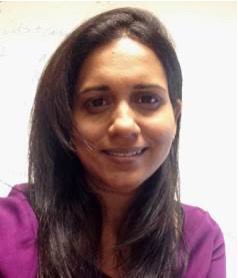
Sheela Kolluri, PhD
Clinical Domain Lead, Artificial Intelligence, Data & Analytics (AIDA), Pfizer Digital
Dr. Sheela Kolluri has over 20 years of experience in pharmaceutical drug development, with a focus on leadership in Statistics, Data & Quantitative Sciences. During this time, Sheela has also held adjunct faculty (teaching) positions in Academia. Currently she is the Clinical Domain Lead in the Artificial Intelligence, Data & Analytics (AIDA) organization at Pfizer. In this role she drives the enterprise AI, Machine-learning, Data & Analytics strategy for clinical drug development at Pfizer. Her remit also includes development of policy and guidance around responsible AI at Pfizer. Prior to this, Sheela has held several industry leadership roles in the fields of Statistics, Real World Evidence (RWE), Data-Sciences and Biometrics. At Teva Pharmaceuticals, Sheela was the Global Head of Clinical & RWE Statistics and Programming. Her other leadership roles included VP, Global Head of Internal Medicine & Hospital Statistics at Pfizer and Global Head of GI Statistics at Takeda’s Data Science Institute. A primary focus of her leadership roles was to drive innovation in quantitative decision-making, trial design and RWE applications, in addition to strategy for AI/ML and Advanced Analytics in drug-development. She has led regulatory submissions for new drug applications in multiple disease areas. Sheela’s leadership experience includes developing SOPs, standards and analytic tools for clinical development, including data-governance and bioethics. Given her passion for teaching, she is currently an adjunct (teaching) faculty member at Columbia University in their Applied Analytics Program. Previously she was an adjunct faculty member in the Department of Statistics in Columbia University. As an active member of the Statistical community, she is the Vice-President of the New York City Metro Area Chapter of the American Statistical Association (ASA) and a member of the ASA Biopharmaceutical Section Funding Committee. Sheela received her Ph.D. in Biostatistics from the University of Iowa (Iowa City, IA).

Dean Sittig, PhD
Biomedical Informatics, University of Texas Health Science Center
Dean F. Sittig is a Professor in the School of Biomedical Informatics at the University of Texas Health Science Center in Houston, TX. He received his PhD in Medical Informatics from the University of Utah. His research interests center on design, development, implementation, and evaluation of all aspects of clinical information and communication systems with a special emphasis on electronic health records and clinical decision support. He has spent his career working to improve our understanding of both the factors that lead to success, as well as, the unintended consequences associated with various forms of health information technology. He has spent considerable time studying various aspects of computer-based provider order entry with clinical decision support including factors that lead to success as well as the unintended consequences of their use. Most recently he has focused his efforts on developing guidelines for the safe and effective implementation and use of electronic health records (EHRs) that are based on an 8-dimension socio-technical model that he developed with Hardeep Singh. This work led to the development of the SAFER guides that were designed to help healthcare organizations conduct pro-active risk assessments of their EHRs. He occasionally serves as an expert witness in legal matters that involve analysis of EHRs. He recently co-authored the following books, “Improving Outcomes with Clinical Decision Support: An Implementer's Guide, Second Edition”, “Improving Medication Use and Outcomes with Clinical Decision Support”, “Clinical Information Systems: Overcoming Adverse Consequences”, “Electronic Health Records: Challenges in Design and Implementation” and most recently “SAFER Electronic Health Records: Safety Assurance Factors for EHR Resilience”.

Gretchen Purcell Jackson, MD, PhD, FACS, FAMCI, FAMIA
President and Board Chair, AMIA
Vice President and Scientific Medical Officer and Associate Professor, Intuitive Surgical, Vanderbilt University Medical Center
Gretchen Purcell Jackson, MD, PhD, FACS, FAMCI, FAMIA is Vice President and Scientific Medical Officer at Intuitive Surgical and an Associate Professor of Surgery, Pediatrics, and Biomedical Informatics at the Vanderbilt University Medical Center. She is President and Chair of the Board of Directors for the American Medical Informatics Association (AMIA) and an elected fellow of the American College of Medical Informatics (ACMI). Dr. Jackson is board certified in general, pediatric surgery, and clinical informatics. Her research interests are consumer health informatics and evaluation of artificial intelligence and other digital solutions for healthcare.
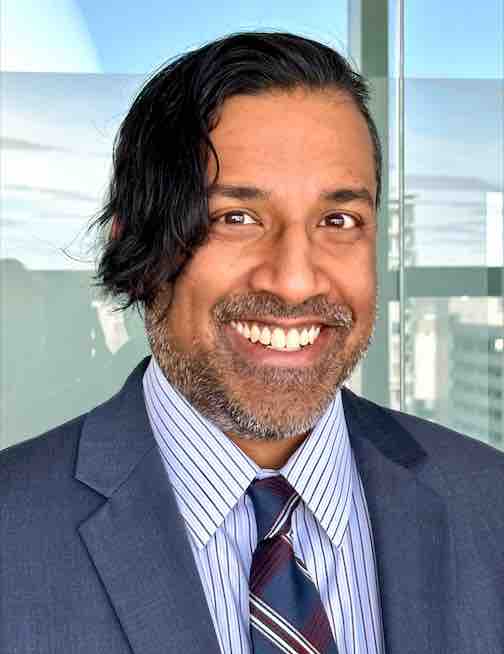
Sayon Dutta, MD, MPH
Assistant Professor of Emergency Medicine, Massachusetts General Hospital
Physician Lead, Emergency Medicine and Clinical Decision Support, Mass General Brigham Digital
Sayon Dutta, MD, MPH is an Assistant Professor of Emergency Medicine at Massachusetts General Hospital and serves as the physician lead for Emergency Medicine and Clinical Decision Support at Mass General Brigham Digital. He completed training in Emergency Medicine at the Harvard Affiliated Emergency Medicine Residency and then joined as a research fellow at MGH during which time he earned a MPH in Quantitative Methods at the Harvard School of Public Health. As a fellow, he focused primarily on the role of information technology in humanitarian response. Specifically, he investigated telemedicine applications in resource-poor settings, and the role of participatory mapping technologies during large-scale disasters. He subsequently joined the faculty at MGH and Harvard Medical School and performs research on the impact of clinical decision support within the electronic health record, with a special interest in the development, evaluation, and deployment of machine learning models.

Amy Price, PhD
BMJ Research Editor (Patient and Public Partnership)
Senior Research Scientist, Stanford School of Medicine
Dr. Amy Price worked as a Neurocognitive Rehabilitation consultant and in International Missions before sustaining serious injury and years of rehabilitation. She emerged with an interest in AI and a goal to build a bridge between research methodology, research involvement and public engagement where the public is trained and empowered to be equal partners in health research. She is currently training 20 teams of investigators to work together in research innovation and implementation. Amy’s experience has shown her that shared knowledge, interdisciplinary collaboration, and evidence-based research will shape and develop the future. She serves as a BMJ Research Editor (Patient and Public Partnership) and is a Senior Research Scientist at Stanford School of Medicine.

Madeleine Clare Elish, PhD
Head of Responsible AI, Google Cloud
Madeleine, is a cultural anthropologist with a background in researching the social impacts of AI and automation on society. She joined Google as a senior research scientist, and now leads Cloud's Responsible AI work. She currently serves on the Executive Committee of the ACM Conference on Fairness, Accountability, and Machine Learning (FAccT). Previously, she led an AI research and policy team at Data & Society Research Institute, a think tank focused on the power and purpose of technology in society. Her work has been published and cited in scholarly journals as well as publications including The New York Times, Wired, and MIT Tech Review. She holds a doctorate in anthropology from Columbia University and a Master of Science in comparative media studies from the Massachusetts Institute of Technology.
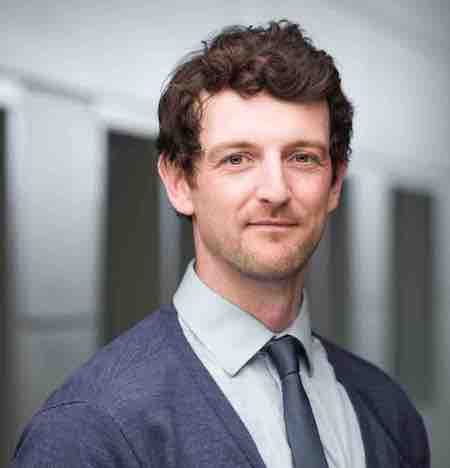
Paul Barr, PhD
Associate Professor, The Dartmouth Institute for Health Policy & Clinical Practice, Biomedical Data Science
Member of the Center for Technology and Behavioral Health, Geisel School of Medicine
Dr. Barr is an Associate Professor in The Dartmouth Institute for Health Policy & Clinical Practice, Biomedical Data Science, and a member of the Center for Technology and Behavioral Health, Geisel School of Medicine. He is trained in quantitative and qualitative methods with more than 60 peer-reviewed publications (including in the BMJ, JAMA, JAMIA Open and NEJM), and significant funding from the National Institutes of Health (NIH) and the Patient Centered Outcomes Research Institute (PCORI). His research portfolio includes the development and implementation of measures of shared decision making (SDM), the user centered design and evaluation of patient facing digital interventions to support patient centered communication. In 2015 he formed OpenRecordings, a multidisciplinary group of researchers, clinicians, and patients to evaluate potential clinical utility of audio/video recordings of healthcare visits. Dr. Barr is currently PI/MPI of two multicenter trials to determine the impact sharing clinic visits with older adults on their health outcomes. He and his team have also developed novel software, HealthPAL, a comprehensive audio personal health library that supports sharing of clinic visit recordings with patients and applies natural language processing (NLP) to automatically identify key information in the visit, linked to trustworthy, patient-friendly information. He is also an MPI of an NIA funded R01 project, where he plans to refine HealthPAL, adding NLP features to promote greater patient centered communication for patients living with dementia and their care partners.
Organized by:






